Introducing your child to the world of language and literature through short poems and songs is an incredibly effective method for three to five-year-olds. This age group tends to be more receptive and engaged when learning through poetry, often developing a habit of repeatedly reading and reciting these poems. Are you aware of the advantages of teaching poetry to your three-year-old? Let’s explore the benefits and discover some wonderful poems to enhance your child’s language skills and brain development.
1 Benefits of Introducing Poetry to Three-Year-Olds
By the age of three, children’s vocabulary and understanding of the world have significantly expanded compared to one or two-year-olds. They are capable of remembering and comprehending simple concepts. Teaching poetry at this age will aid in vocabulary expansion and stimulate their innate creativity due to the rhythmic and structured nature of poems. Learning poetry provides a fun and natural way to acquire new words, as children will associate the verses with vivid images, making memorization easier.
 Unlocking the Benefits of Teaching Poetry to Three-Year-Olds
Unlocking the Benefits of Teaching Poetry to Three-Year-Olds
Additionally, learning poems with cheerful and simple rhymes will encourage children to develop other skills, including counting, writing, and enhancing their listening and reading abilities. This, in turn, will boost their confidence when performing or sharing their “poetic talents” with audiences, such as their teachers, friends, or family members.
To make poetry learning enjoyable for young children, parents should select short poems with themes related to nature, family, or school. Start by reading a line or two and gradually work towards reciting the entire poem. Then, allow your child to read it independently. It is recommended to incorporate this activity into their bedtime routine without forcing immediate memorization.
2 Top 10 Poems to Enhance Your Child’s Language Skills and Brain Development
The Adventures of Lazy Cat
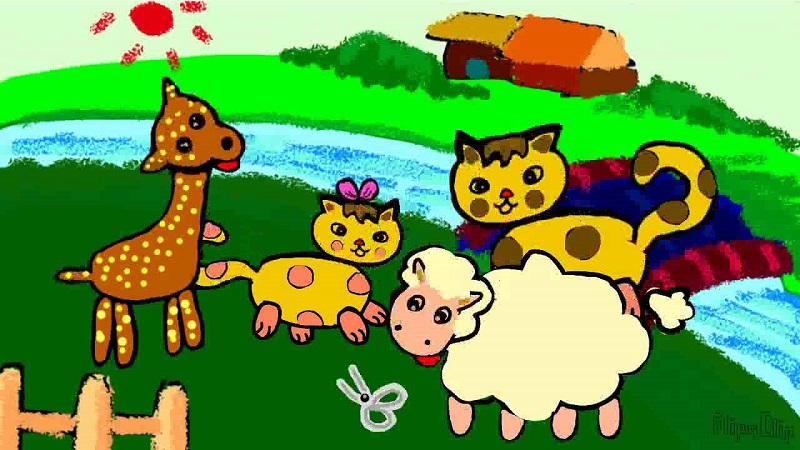 The Adventures of Lazy Cat
The Adventures of Lazy Cat
Lazy cat is feeling blue,
For tomorrow brings school, something new.
With a trick up his sleeve, he fakes a sickness,
“My tail, it aches!” he meows, but Sheep smells foulness.
Sheep suggests a tail removal, a drastic solution,
But Lazy Cat agrees, no fear in his meow.
Yet, a change of heart comes, and he’s school-bound,
With his tail intact, he’s ready to learn, no longer ground.
The Green Cabbage’s Charm
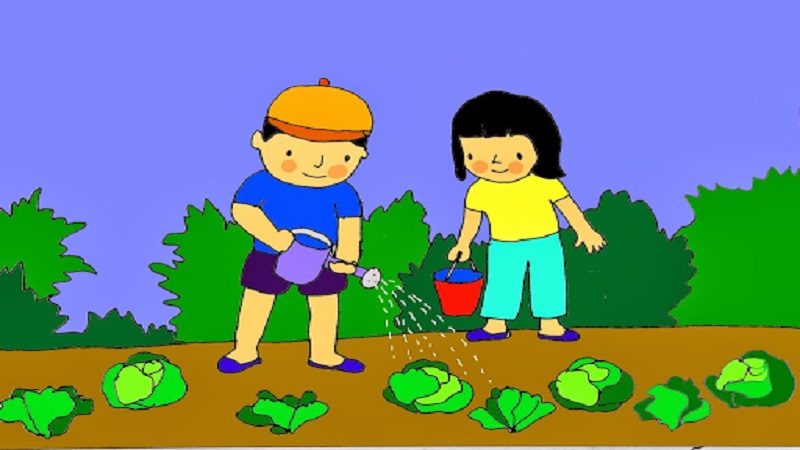 The Green Cabbage’s Charm
The Green Cabbage’s Charm
Oh, the green cabbage, so crisp and fresh,
Its leaves, a perfect mesh, a lovely dress.
They circle ’round, protecting the heart so dear,
A tender, young bud nestled safe and clear.
Spring’s Sweet Fruits
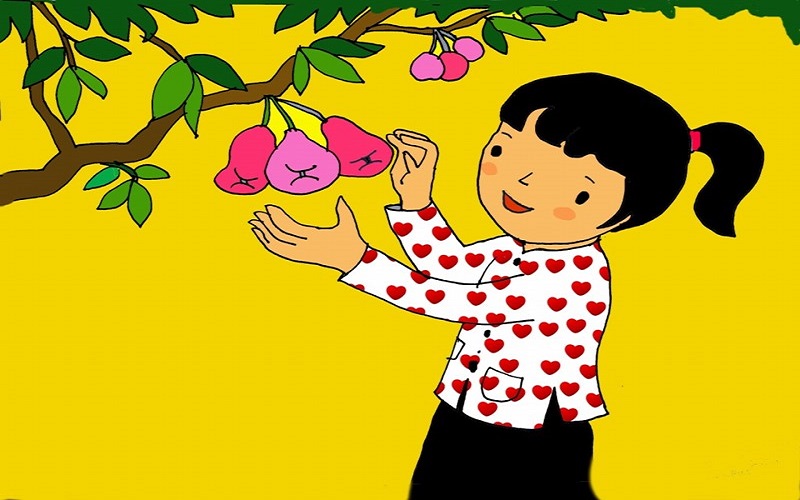 Spring’s Sweet Fruits
Spring’s Sweet Fruits
Spring’s sweet fruits, a delightful sight to behold,
Warm and cozy, their fragrance so bold.
Each fruit, a perfect sphere, a tasty treat,
On the branches, they sing, filling the air with sweetness.
Grandpa’s care bore these fruits, now a feast for us,
A treat to share, a garden of bliss and lush.
City Lights and Sights
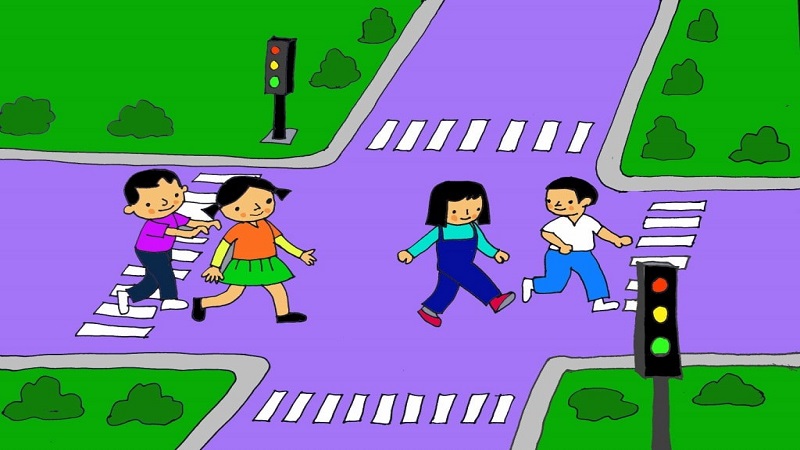 City Lights and Sights
City Lights and Sights
Off we go to the city, a world of fun and lights,
But wait, the traffic light says red, a rule we must abide.
We stop and wait patiently, that’s the way to go,
Then it turns yellow, and soon we’ll be ready to flow.
Green means go, so let’s be quick,
Safely crossing the street, a tricky trick!
Candyland Delights
 Candyland Delights
Candyland Delights
Oh, candy, a treat so sweet and nice,
A delight to eat, a pleasure so precise.
But remember, brush your teeth after the feast,
Or cavities will lurk, a dentist’s treat.
Blame not the candy, for it’s a joy in moderation,
Indulge and enjoy, that’s the right sensation.
Teacher, Dear Teacher
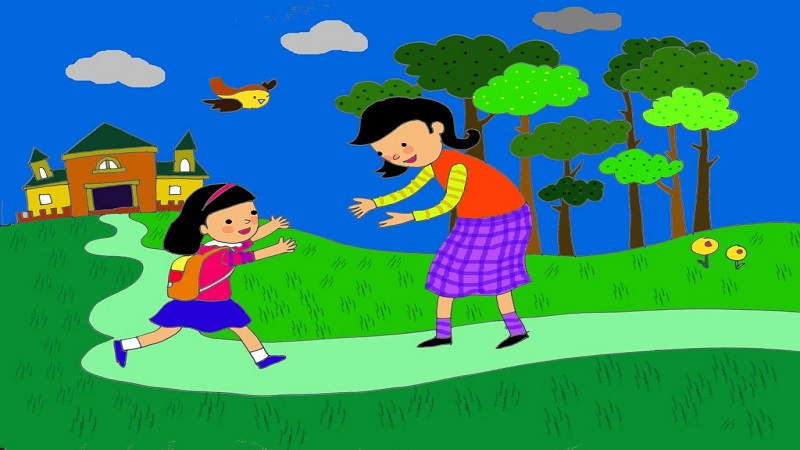 Teacher, Dear Teacher
Teacher, Dear Teacher
In the morning, a hug for mom, a dash to greet,
And in the evening, a wave to the teacher, so sweet.
My world revolves around these two, a busy feet treat,
A hug, a wave, my day is complete.
A Mother’s Love
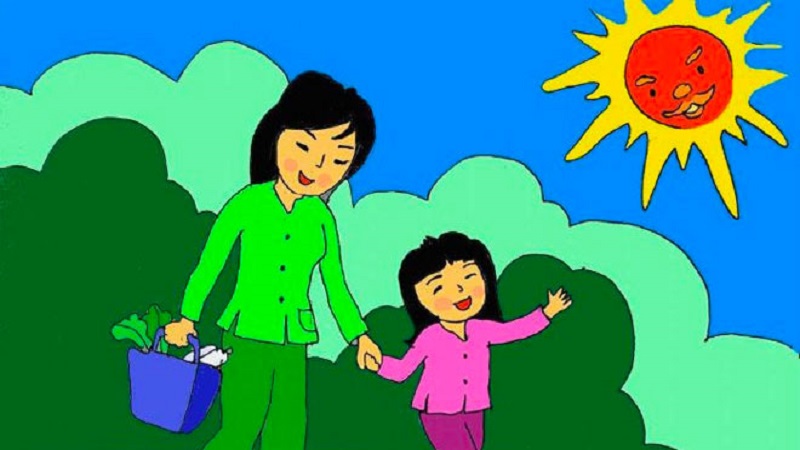 A Mother’s Love
A Mother’s Love
As the sun rises, Mom’s already there,
Preparing meals with a touch of love and care.
I wake to her kisses, so gentle and warm,
Oh, Mother, my love, my world, my storm.
Grandma’s House, a Fun Exploration
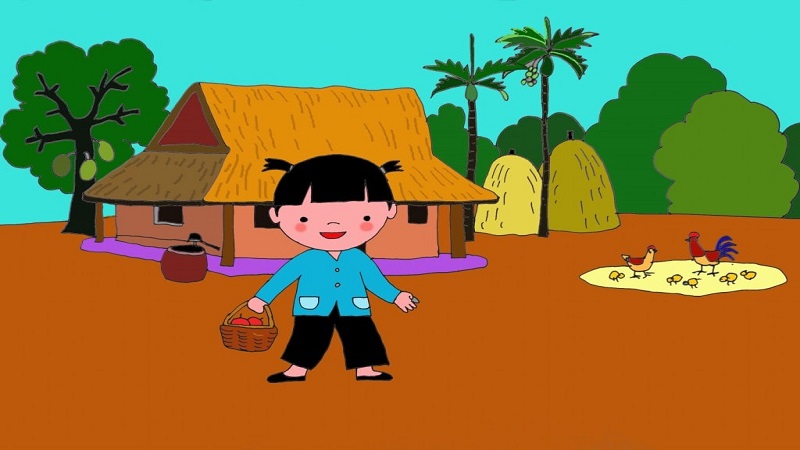 Grandma’s House, a Fun Exploration
Grandma’s House, a Fun Exploration
Off to Grandma’s house, a journey of fun and cheer,
But she’s not home, so we explore, without fear.
A flock of chicks basks in the sun’s ray,
Chirp, chirp, they sing, a melody so gay.
We gently herd them, a game so new,
Unafraid, they run, a playful crew.
The Whispering Banana Tree
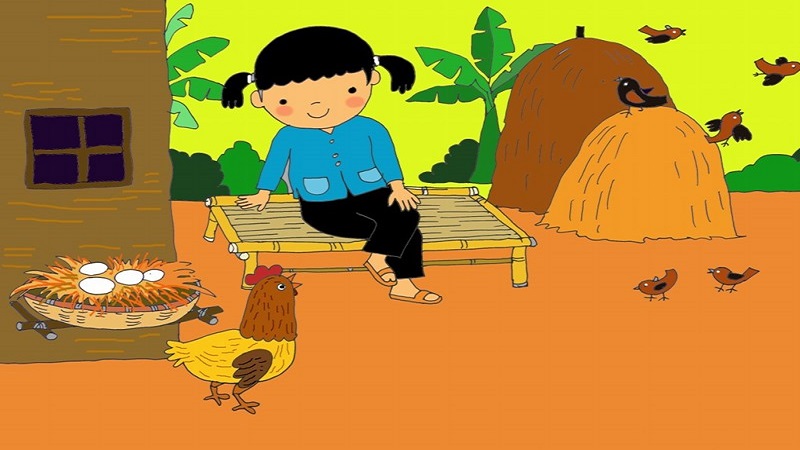 The Whispering Banana Tree
The Whispering Banana Tree
In our backyard stands a banana tree, so tall,
Its flowers bloom, a whispered tale to enthrall.
“I’m old,” it sighs, “but my offspring now prevail,
A new life, a new legacy, free from the pale.”
A Friend, a Poem
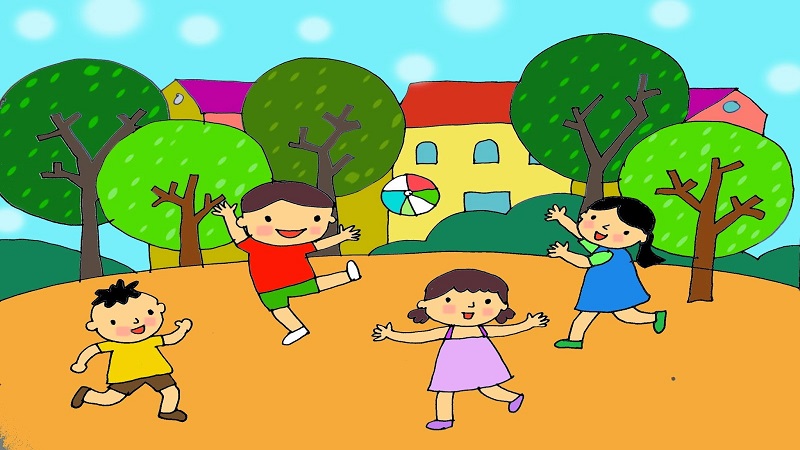 A Friend, a Poem
A Friend, a Poem
A new friend, so shy and sweet,
Poems and songs, a joyful treat.
Hand in hand, we play, a happy land,
Our teacher smiles, a magical band.
Through these poems, may your child develop a love for language and learning. Enjoy these fun and educational poems, creating lasting memories together!
































